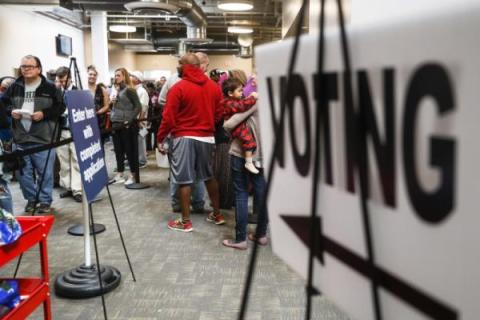The open primaries movement won an important victory last week.
Florida’s Constitutional Revision Commission—which comes into existence every 20 years—held public hearings over the past six months, from Miami to the panhandle. Thousands of Floridians testified for and against hundreds of different issues, and open primaries was one of the most popular topics represented.
Two thousand separate proposals were submitted to the Commission for consideration, and six were flagged by the commission for further discussion.
One of the six deals with Florida’s closed primary system.
To be sure, the proposal being debated is not an effective solution. What it would do is close the “write in loophole” that has been exploited by Democratic and Republican candidates and party insiders, over the last 20 years, to exclude independent voters from participating in primaries in situations in which there won’t be a general election.
Closing the loophole doesn’t fully reform the outdated and exclusionary partisan primary system that excludes independents, limits choice for Democrats and Republicans, restricts coalition building, and rewards partisanship. As Steve Hough, Director of Florida Fair and Open Primaries put it in a recent editorial for Gannett: “Times have changed, and the phenomenal growth of non-affiliated voters demands we do more.”
The victory lies not in the content of the “close the loophole” measure being put forward by the Commission, but in the growing power of the open primaries movement in Florida. Six months ago, this Commission did not intend to address issues of political reform and voter empowerment, but our growing movement pressured them to listen and act. We used the public hearing process to develop our voice and our capacity.
Victory is too often defined in ways that obscure growth. We fixate on the outcome, while ignoring the qualitative growth that drove it. What the people of Florida -- what Steve Hough, Kristen Kiernan, Tim Canova, Andrew Huston, and dozens of other activists -- have done over the last few months, to catalyze and educate, is a victory.
The CRC may not go all the way and put a referendum on the ballot that fully opens the primaries. The people of Florida will most likely have to make it happen themselves via ballot referendum, which will take millions of dollars and millions of hours of volunteer outreach. But if the last six months are any indication, Floridians are up to the task.
Photo Source: AP
